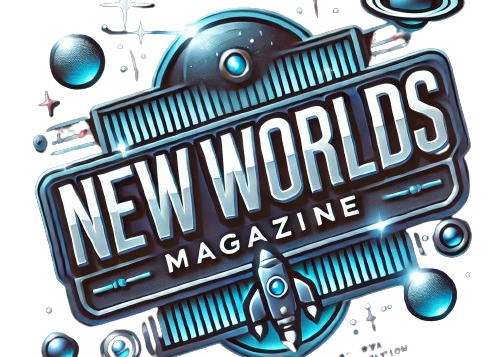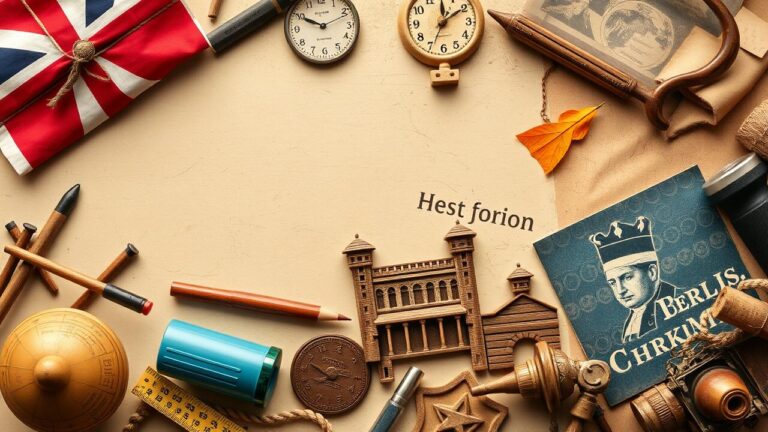Table Of Contents
Exploring the Origins of Historical Events: Uncovering the Past
Key Takeaways
- Investigating the importance of historical beginnings and their implications.
- Delving into ancient times to understand foundational events.
- Techniques for examining past occurrences and their relevance.
- Recognizing significant historical locations and their narratives.
- Analyzing specific examples of notable historical occurrences.
Exploring The Origins Of Historical Events | The Significance of Historical Beginnings
Understanding the significance of historical beginnings is essential for grasping how societies evolved from ancient times to the present. Exploring the Origins of Historical Events illuminates the frameworks created by historians, paving the way for a deeper appreciation of various histories, including Native American history and the colonial era. The American Historical Association and the Omohundro Institute of Early American History & Culture provide valuable resources for examining these narratives. Medieval studies also shed light on how ancient civilizations across the ancient Americas influenced later developments. Each historical method used by researchers contributes to a comprehensive understanding of past events, as illustrated in publications like The American Historical Review. By delving into these origins, one gains insight into the complex tapestry of history that shapes our modern world.
- The importance of historical context in understanding events and cultural shifts.
- The role of primary sources in revealing firsthand accounts of the past.
- How differing historical perspectives can lead to varied interpretations of the same event.
- The influence of geography and environment on the development of societies.
- The significance of archaeological findings in reconstructing historical narratives.
- The impact of historical events on today’s social, political, and economic landscapes.
- The need for critical thinking when evaluating historical sources and interpretations.
Exploring the Origins of Historical Events | Understanding the Framework of History
Understanding the framework of history involves delving into the myriad civilizations that have shaped human experience. Exploring the Origins of Historical Events reveals significant influences from the ancient Greek world, Ancient Rome, and Ancient Egypt, each contributing unique cultural and philosophical ideas that continue to resonate today. The innovation during the Renaissance period and the complexities of colonial colonization offer additional layers of understanding, as societies interacted, conflicted, and evolved. Ancient India and Ancient China also play pivotal roles in this narrative, showcasing how diverse civilizations enriched the tapestry of human history.
Exploring the Origins of Historical Events requires careful examination of various sources, including ancient texts and artifacts housed in institutions like The National Archives. The Hellenistic world serves as a prime example of cultural blending, demonstrating how interactions among civilizations fostered advancements in art, science, and literature. Southern literature reflects the historical contexts of its time, offering insights into how past events were perceived and recorded. Each aspect contributes to a richer understanding of how historical frameworks were established, influencing contemporary society’s worldview.
The Impact of Ancient Civilizations
Ancient civilizations lay the groundwork for modern societies, offering invaluable insights into the evolution of cultures and social structures. Exploring the Origins of Historical Events reveals the legacies of groups such as the Egyptians and Romans. Their achievements in architecture, governance, and trade establish a framework for understanding present-day cultures. The British Museum houses artifacts from these ancient societies, showcasing the influence of settlers who shaped their environments. Ruins from these civilizations, like the remnants of Viking settlements, tell stories of resilience and adaptation, echoing through first-person narratives found in historical archives.
The transformative effects of ancient civilizations can also be seen in notable historical events. The cultural revolutions inspired by these societies often prompted significant changes across continents, evident in events like the Civil War, which was in part fueled by the philosophical ideas stemming from ancient democratic practices. Exploring the Origins of Historical Events allows for a deeper comprehension of how early cultures, through their own odysseys and struggles, paved the way for contemporary civilization. Museums around the world curate exhibitions that illustrate these vibrant histories, allowing visitors to engage with the past and appreciate the intricate tapestry of human culture.
Exploring Ancient History
Ancient history encompasses a vast array of historical events that have profoundly shaped societies across the Americas. Exploring the origins of historical events unveils the intricate relationship between geography and the development of native American peoples in regions like the American South. The impact of slavery and war on these native Americans reveals complex dynamics that influenced societal structures. Significant historic events in this context highlight how geographical features often dictated patterns of life and conflict. Engaging with historical concepts allows for a deeper understanding of the legacies left by these groups as they navigated the challenges of their time. Each historical place serves as a testament to the resilience and adaptability of societies throughout this rich tapestry of the past.
Key Events that Shaped Societies
Significant transformations have emerged throughout history, illustrating how past events essentially shape societies. Exploring the Origins of Historical Events necessitates an understanding of critical moments that led to cultural and social shifts. Historical groups and societies often analyze these pivotal occurrences through various historical sources, leading to enriched historical interpretation. This examination fosters a fruitful historical inquiry, enhancing our comprehension of how historical periods influence history today.
Key milestones often serve as focal points in historical research, demonstrating the interconnectedness of civilizations. Historical thinking allows for a nuanced understanding of the dynamic relationships between events and their impacts. Such historical work not only sheds light on past history but also elucidates the ways in which these formative moments guide contemporary social structures. As we delve deeper into historical study, we recognize that history exists not merely as a record but as an ongoing dialogue between past and present events.
The Role of Religion in Historical Development
Religion has consistently served as a central pillar in the development of societies throughout history. Exploring the Origins of Historical Events reveals how different faiths shaped the laws, customs, and moral frameworks of various cultures. From the ancient history sourcebook to the study of southern history, historians have examined how religious beliefs influenced everything from governance to daily life. Public historians curate historical collections that illustrate the significance of religious narratives in shaping American history, demonstrating the power of faith in community identity and cohesion over centuries.
The impact of religion extends beyond ancient civilizations, leaving a lasting imprint on modern world history. Scholars involved in historical reviews often investigate black history and how spiritual movements fostered social change. Various historical associations illuminate the connections between religion and the formation of own histories in diverse societies. The intersection of religion and politics has often resulted in major turning points, influencing the course of events and the development of cultural identities worldwide.
- Religion has been a catalyst for major social movements, advocating for justice and equality.
- It has played a crucial role in the establishment of educational institutions and moral guidelines.
- Religious conflicts have often shaped geopolitical landscapes, leading to wars and treaties.
- Diverse faiths have contributed to the richness of art, literature, and philosophical thought.
- The intertwining of religion and nationalism has influenced the formation of modern states.
- Interfaith dialogues have promoted understanding and coexistence in increasingly multicultural societies.
- Religious practices have left a profound legacy on cultural traditions and community rituals.
Methods for Investigating Historical Events
Many historians emphasize the importance of various methods for exploring the origins of historical events, as these approaches provide insight into the complex tapestry of human origins. From the early 1860s to the 20th centuries, historical discourse has evolved, reflecting changes in the historical discipline and shaping history education. For history majors, understanding how to analyze historical accounts and the artifacts from medieval life is vital in constructing a coherent narrative of past events. The modern history sourcebook serves as an essential resource, aiding researchers in their quests to uncover the nuances of significant eras, while the history relevance campaign underscores the need to connect past events with contemporary issues.
Archaeological Techniques in Historical Research
Archaeological methods provide invaluable insights into Exploring the Origins of Historical Events. Professional historians, including US-based historians and national history teachers, utilize these techniques to construct a clearer timeline of events that shaped different civilizations. As we delve into the past, the significance of each discovery becomes apparent, particularly how these findings relate to our ancestors. For instance, excavation sites from the 1860s onward have revealed artifacts that illuminate aspects of Latino history, further enriching our understanding of America’s diverse heritage.
The process of unearthing ancient civilizations requires meticulous techniques that often blend science and art. Tools such as ground-penetrating radar and carbon dating allow researchers to create an accurate timeline of historical development. Historical thinking is seldom straightforward, yet through archaeological exploration, we gain a more nuanced understanding of how societies evolved. By consulting platforms like History Google Arts, researchers can visualize artifacts and contextualize them within broader narratives, enhancing our exploration of each civilization’s contribution to our collective past.
Analyzing Historical Texts and Artifacts
Investigating historical texts and artifacts is crucial for Exploring the Origins of Historical Events. Colonial documents serve as original sources that shed light on the significance of specific time periods, including the pivotal events of the 20th century. Institutions like the British Museum preserve these invaluable resources, allowing historians to piece together a helpful timeline of current events. The examination of a medieval sourcebook can reveal insights into the social structures and beliefs of that era, further enriching our understanding of historical narratives.
Artifacts provide tangible connections to the past, offering clues that complement written records. An active history laboratory encourages the exploration of these original sources, enabling researchers to analyze materials from various time periods. Each artifact tells a story, whether it’s a piece of pottery from an ancient civilization or a 20th-century diary reflecting on major societal changes. By critically evaluating these items in context, historians can better grasp the complexities surrounding historical events and their enduring impact on contemporary society.
Notable Historical Sites and Their Stories
Historical sites serve as a gateway to understanding the complexities of our past. Exploring the Origins of Historical Events reveals how these locations encapsulate high-quality history, often dating back to significant periods such as the Civil War. These sites not only preserve original documents but also offer a great introduction to the narratives that shaped our world. Preservation societies play a vital role in maintaining these treasures, ensuring that contemporary sources can inform future generations about their significance. As we navigate the 21st century, recognizing the importance of these sites becomes critical in connecting with the rich tapestry of times gone by. Each date etched in history echoes the stories that contribute to our understanding of human civilization.
Uncovering the Heritage of Ancient Monuments
Ancient monuments serve as tangible connections to the past, revealing the rich tapestry of cultures that shaped various societies. Exploring the Origins of Historical Events through these structures helps historians decipher the complexities of civilizations like Ancient Egypt, where architectural feats reflect not only aesthetic values but also societal hierarchies and beliefs. These monuments tell stories that transcend dates and periods, illustrating how nations evolved over time. Provisional interpretations of these sites often lead to insights about southern life, the role of religion, and the dynamics of power among peoples in different eras.
The legacy of ancient monuments extends beyond mere physical structures; they embody the essence of the cultures they represent. Artifacts unearthed at these sites provide context to American slave narratives and the experiences of indigenous peoples in the Americas. Through careful analysis, scholars can unearth the stories that define a nation’s identity and its historical trajectory. Exploring the Origins of Historical Events through these lenses allows for a deeper understanding of how past societies influenced contemporary civilization, reinforcing the importance of preserving these monumental legacies for future generations.
The Influence of Geography on Historical Events
Geography has played a crucial role in shaping historical narratives throughout various ages. Exploring the Origins of Historical Events reveals how the physical landscape influenced the course of civil wars, such as the American War between the American colonies and British forces. The terrain of the American South, with its rivers, forests, and urban centers, created strategic advantages and challenges that are vividly captured in civil war photographs and writings. Such resources, including national archives records, offer extensive insights into how geography dictated military strategy and affected daily life for those living in these regions.
The Greek world serves as another example of geographical influence on historical events. The mountainous landscape led to the emergence of city-states, each with distinct stories and cultures. Studies of this era, available through platforms like the Internet Medieval Sourcebook, provide perspectives on how geography defined social structures and trade routes. As students enrolled in undergraduate history courses examine these connections, it becomes clear that the geography of olden times not only influenced political boundaries but also shaped the cultural identities of civilizations across continents. Exploring the Origins of Historical Events through this lens reveals the intricate interplay between environment and human history.
| Event | Geographical Influence | Consequences |
|---|---|---|
| American Civil War | Rivers and forests providing strategic advantages | Altered military tactics and troop movements |
| Formation of Greek City-States | Mountainous terrain encouraging city-state development | Diverse cultures and political systems emerged |
| Trade Routes in Ancient Civilizations | Geographical features dictating trade pathways | Economic growth and cultural exchange |
| World War II | Geography affecting battle strategies and logistics | Victory or defeat based on terrain advantages |
Case Studies of Historical Events
Understanding the significance of key events is vital for grasping how societies evolve over time. Exploring the Origins of Historical Events reveals rich narratives, such as the rise and fall of the Maya civilization, which offers profound insights into ancient American cultures. Locations of historical importance, like the Maya ruins scattered throughout Central America, serve as vital examples of how these societies operated. The dynamics between colonies and the confederacy in early American history illustrate the complexities of emerging governance. Exploring these contexts allows for a deeper appreciation of the events that have shaped the Americas, with the annual meeting of historians today reflecting on these pivotal places that have influenced generations.
Major Turning Points in World History
Historical events often serve as pivotal moments that reshape societies and influence present-day realities. Exploring the origins of historical events allows us to connect these significant occurrences to the underlying themes that govern human life. Ethnographic field collection plays a vital role in understanding the context surrounding these events. For example, the American Memory Project provides access to primary sources that illustrate major episodes like the European conflict, enabling a deeper comprehension of how those days affected public life and social studies.
Each turning point can be seen as a reflection of the imaginations and aspirations of the people involved. The congress that led to significant changes in governance marked a shift in societal expectations and laid the groundwork for future policies. A visit to notable historical sites brings these events to life, encouraging a more profound appreciation for their impact. Examining these key moments reveals how they continue to resonate within the modern framework of society, underscoring the importance of understanding our past in shaping the future.
Conclusion
Exploring the Origins of Historical Events provides a foundation for understanding the complexities of our past. By examining various aspects such as cultural practices, social structures, and economic networks, historians can uncover rich records that shed light on how societies evolved. Meeting the challenge of piecing together these narratives requires careful analysis of diverse sources, including texts, artifacts, and archaeological findings. As we continue exploring the origins of historical events, it becomes evident that each discovery not only enriches our knowledge but also connects us to the shared human experience that shapes our present and future.
FAQS
How do different histories shape our understanding of past events, especially in relation to historical societies and the roles of historians?
Different histories provide a diverse perspective on past events, allowing historical societies and professional historians—people who study these narratives— to create a comprehensive view of the timeline explore of the 19th century and beyond. For instance, the historical thinking seldom focuses on singular narratives; instead, it encourages a multitude of viewpoints, including high-quality history from ancient Egypt that concentrates on the cultural context of that era. Similarly, the indigenous Americas page presents a rich tapestry of American perspectives and facts that contribute to our knowledge of years gone by, including insights from the twentieth-century.
How does high quality history help us understand the past, especially when analyzing ancient Egypt, American facts, and the East?
High quality history is crucial as it provides a nuanced view of past events, allowing us to examine how ancient Egypt concentrates on its cultural heritage. The examination of American facts also uncovers different perspectives, while understanding the East reveals diverse historical narratives that together tell the broader story of our past.
How can the study of historical events help us understand how different cultures from the past tell their stories?
The study of historical events reveals the diverse narratives that different cultures from the past tell through their traditions, oral histories, and written records. By examining these stories, we can gain insights into how past societies viewed their world, which in turn enriches our understanding of history as a whole.
What are the key methodologies historians use to explore the origins of historical events across various cultures?
Historians utilize several key methodologies to explore the origins of historical events, including primary source analysis, comparative history, and oral history. These approaches allow historians to gather diverse perspectives and reconstruct narratives, ultimately enhancing our understanding of how events shaped different cultures and societies throughout time.
How do historians determine the credibility of sources when exploring the origins of historical events?
Historians assess the credibility of sources by evaluating the author’s perspective, the context of the information, and cross-referencing with other reliable materials. This critical analysis helps ensure a comprehensive understanding of the origins of historical events.







